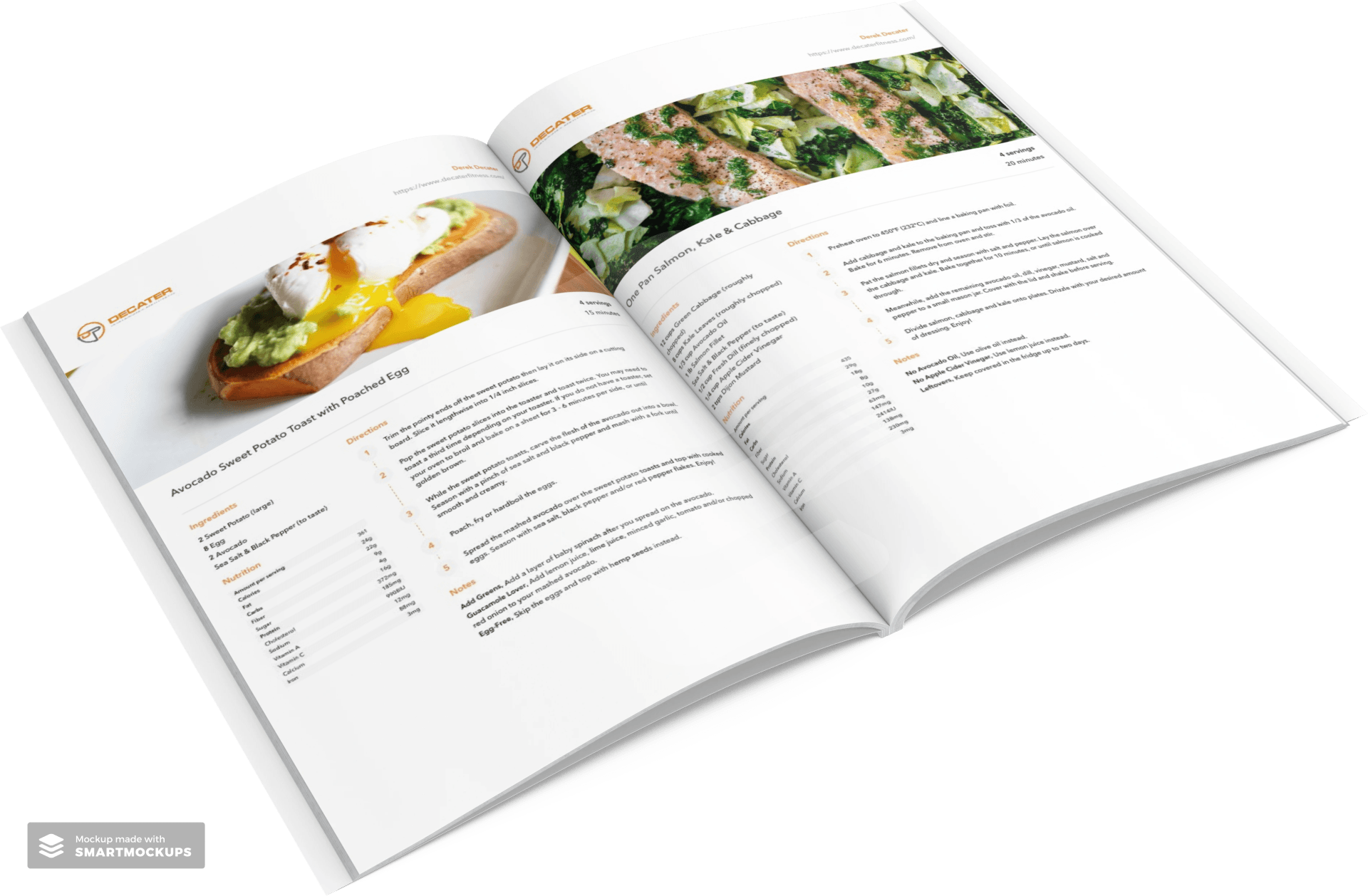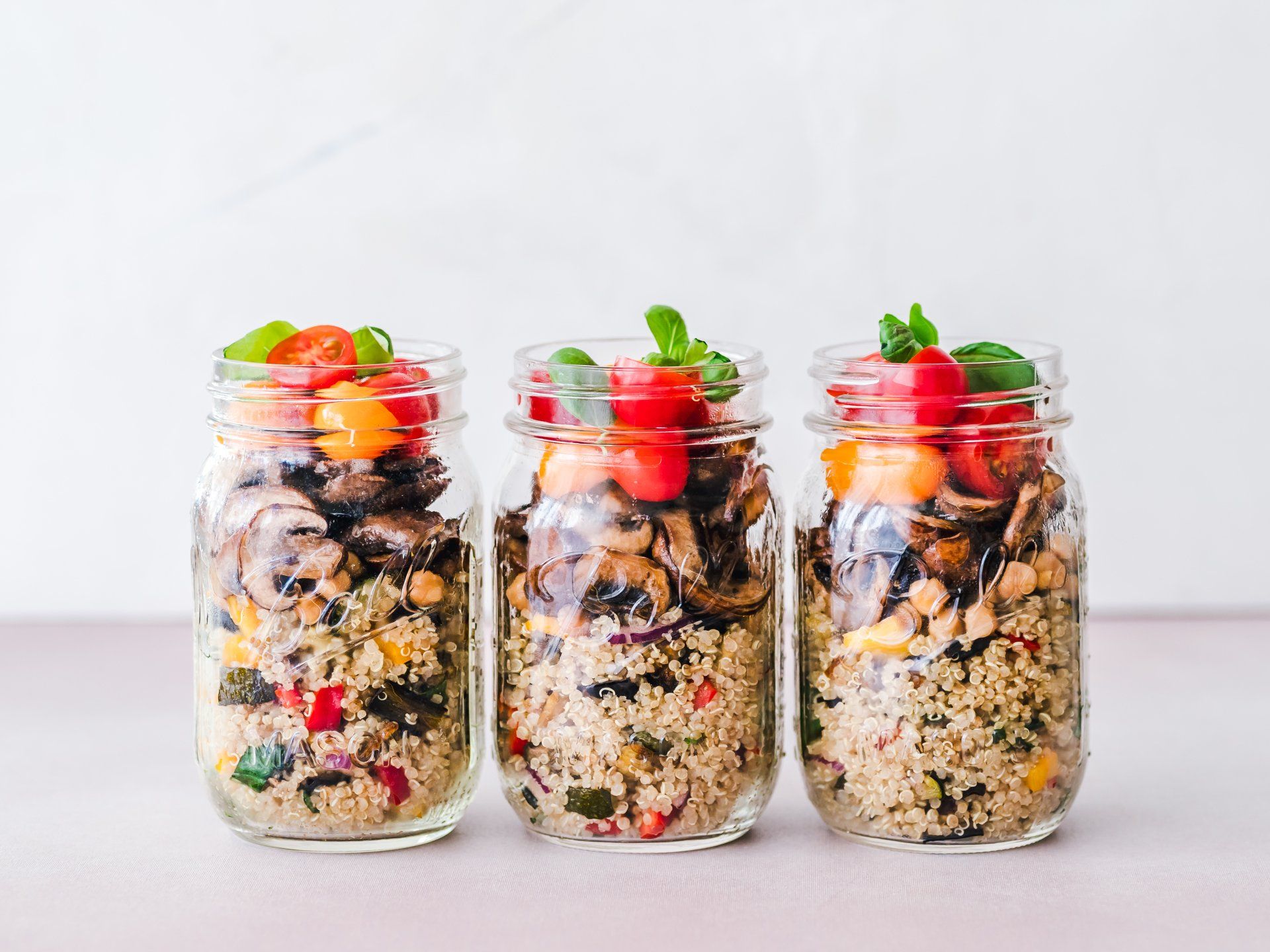5 Simple Fixes to Reduce Your Blood Sugar
Increase fat loss, improves health with these 5 tips
Has your doctor mentioned that your blood sugar, or glucose is a bit higher than normal? Or that you might be insulin resistant? If so, you’re not alone. More than 84 million Americans are right there with you. (1) The bad news is, you may have prediabetes. But the good news is, there are a few simple fixes that can help your insulin to work better and reduce your blood sugar.
No matter what your family history is, or what your diet or lifestyle are like right now, you can still reduce your blood sugar and prevent diabetes.
What is high blood sugar?
After you eat a meal that has carbs in it, (like that bagel at breakfast, the sub roll that holds your sandwich, or the crust on your pizza), those carbs turn into glucose. When glucose builds up in your blood, your insulin has to work to get it out of your bloodstream and into your cells. If your insulin isn’t working well, your blood sugar stays higher than it should. You might also feel more tired, or have less energy, because your cells aren’t getting fed.
A normal, healthy fasting blood sugar should be below 100 mg/dl. If yours is between 100 – 125 mg/dl, it’s likely that you have prediabetes – especially if it’s not a one-time thing. Your doctor might confirm it by doing another test to check your A1C level. A1C is a 3-month average picture of your blood sugar. A normal A1C is less than 5.7%. In someone with prediabetes, A1C jumps to between 5.8 and 6.4%. Diabetes is diagnosed when your A1C is 6.5% or higher. (1)
What causes blood sugar to increase?
Blood sugar increases when insulin stops working normally – also known as insulin resistance. Many things can cause insulin resistance and higher blood sugar. They all put you at risk for developing diabetes. The most common things are: (2)
·Your age – sorry, but as you get older, the risk increases for everyone.
·Your family history – diabetes often tends to run in families, but your genes don’t determine your destiny!
·Your weight, and where you carry it – being overweight puts you at increased risk of developing a high blood sugar. If you carry more weight around your mid-section rather than your lower body (think apple-shape vs pear-shape), you’re even more at risk. That belly, or “visceral” fat is linked to insulin resistance. (3)
·Sitting most of the day.
·For women, a history of gestational diabetes or polycystic ovary syndrome causes more insulin resistance.
·Certain medications, especially glucocorticoids like Prednisone.
·Chronic stress – it increases your cortisol levels which raise glucose and forces your insulin to work harder.
·Sleep deprivation – it messes with all of your hormones, including those that regulate your appetite and blood sugar.
Contrary to what most people think, eating lots of sugar on its own doesn’t cause prediabetes or diabetes.
Something has to first trigger insulin resistance, and then that excess carbohydrate load tips you over into prediabetes or diabetes.
Show your blood sugar who’s boss
Have you ever heard the expression, “If you do nothing, nothing will change?” If you’re on the road to diabetes, consider it a wake-up call. It’s time to make some changes. Focus on simple strategies you can start making today. Each of these helps reduce insulin resistance and improves your blood sugar.
Work on your muscles . Any type of exercise is good for you, but a workout that builds muscle is especially helpful for helping insulin to work better. If the thought of going from couch (or desk) potato to a 10K race is overwhelming, start with muscle work. It pays off quickly – and here’s proof:
In a recent study on overweight men, researchers found that just 6 weeks of resistance training was enough to build muscle and increase their insulin sensitivity. You don’t have to spend hours in the gym either. In this study, the men did just one very intensive set of nine muscle exercises, for 15-20 minutes three times a week. (4)
Cut out processed foods. Rather than worrying about cutting carbs and sugar, try to add more whole foods. Build your meals and snacks from high quality whole food ingredients – the kind that don’t have a food label. You really can’t go wrong with fruits, vegetables, grass-fed meats, organic chicken and eggs, wild fish, and unprocessed whole grains like oats, quinoa or farro.
Get into the habit shopping mostly from the perimeter of the store (skipping the bakery, of course!). When you do go into the aisles, make sure you read the food labels. If you see more than 3 or 4 ingredients in a food, and especially if you don’t know what those ingredients are, put it back.
Processed foods contain ingredients that often have a negative effect on your body. As an example, a common ingredient in bread, called propionate , has recently been shown to increase insulin resistance for a few hours after eating it. (5) Have you ever looked at how long the ingredients list is on a loaf of whole grain bread?
Eat some protein and healthy fat with each meal and snack . This is an easy tip that also helps to keep your hunger at bay for longer. Every time you eat, especially if you’re eating carbs, just add some protein (like a ½ cup of Greek yogurt or cottage cheese, some meat or fish, a deviled egg) and some healthy fat (like a handful of nuts, some peanut butter, or a scoop of guacamole). Bonus points if you can also add a serving of vegetables!
Mixing your meals like this slows down your digestion. Carbs are digested more slowly, and your insulin doesn’t have to spring into action quite so fast.
Feed you gut. Your gut is home to trillions of bacteria that help more than your digestion. There’s much evidence that your microbiome helps to regulate your blood sugar, as well as your weight. People who are at a healthier weight and without diabetes have a different, more diverse selection of healthy bacteria in their gut.
Researchers have noted that as people eat a more Western-style diet high in meat, fat, and processed foods, their microbiome becomes less healthy and diverse. (6) Interestingly, studies have also found that the microbiome in obese individuals is able to extract more calories from their diet, and store more as fat. (7)
Here’s how to keep your gut happy, healthy, and working for you rather than against you:
·Eat more plants – fruits, vegetables, legumes, nuts, seeds and any high fiber, unprocessed grains are the best foods to feed and multiply your good bacteria.
·Add fermented foods at least a few times each week. These include plain yogurt, kefir, cultured sauerkraut, kimchee, or kombucha.
·Eat fewer fast foods, processed foods, sugary foods, and anything made with white flour. These are the things that kill off your healthy bacteria.
Finally, work on your stress . Chronic stress causes an increase in your cortisol – one of the fight or flight hormones. (8) When cortisol stays higher than it should for long periods of time, it causes your liver to pull sugar and fat out of storage, and it ends up in your bloodstream. That results in insulin that’s constantly overworked, blood sugar that eventually creeps up, and cholesterol and triglycerides that are too high. All, despite your efforts to eat a healthy diet.
Anyone who suffers from chronic stress understands that it doesn’t go away on its own. You have to learn how to deal with it and react to stress in a healthier way. Activities like exercise (especially if you can get outside in nature), yoga, massage, meditation, and talk-therapy can all be helpful to relieve stress and teach you ways to cope with it.
It’s important to know that insulin resistance or prediabetes is more than just a nuisance that requires you to stick your finger or take a pill. It puts you at increased risk of a heart attack, stroke, or even cancer. Talk to your doctor to see if you’re at risk and take some simple steps to reduce your blood sugar today!
References
1.American Diabetes Association. http://diabetes.org/ . Accessed April 25, 2019.
2.Insulin resistance and prediabetes. National Institute of Diabetes and Digestive and Kidney Disease. https://www.niddk.nih.gov/health-information/diabetes/overview/what-is-diabetes/prediabetes-insulin-resistance. Updated May 2018. Accessed April 27, 2019.
3.Abdominal fat and what to do about it. Harvard Health Publishing Harvard Medical School. https://www.health.harvard.edu/staying-healthy/abdominal-fat-and-what-to-do-about-it . Accessed April 27, 2019.
4.Ismail AD, Alkhayl FF, Wilson J, Johnston L, Gill JM, Gray SR. The effect of short‐duration resistance training on insulin sensitivity and muscle adaptations in overweight men. Experimental physiology. 2019 Jan 18.
5.Al-Assal K, Martinez AC, Torrinhas RS, Cardinelli C, Waitzberg D. Gut microbiota and obesity. Clinical Nutrition Experimental. 2018 Aug 1;20:60-4.
6.Could a popular food ingredient raise the risk of diabetes and obesity? Harvard T.H. Chan School of Public Health. https://www.hsph.harvard.edu/news/press-releases/could-a-popular-food-ingredient-raise-the-risk-for-diabetes-and-obesity/ April 24, 2019. Accessed April 27, 2019.
7.Sharma S, Tripathi P. Gut microbiome and type 2 diabetes: where we are and where to go?. The Journal of nutritional biochemistry. 2018 Oct 11.
8.Stress management. Mayo Clinic. https://www.mayoclinic.org/healthy-lifestyle/stress-management/in-depth/stress/art-20046037. Updated May 18, 2019. Accessed April 27, 2019.














